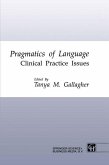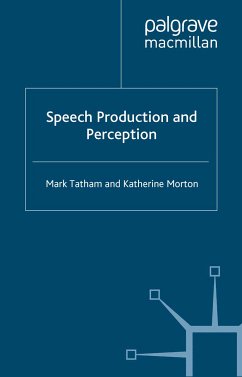This book also presents a critical evaluation of our current state of knowledge of pragmatic disorders. The author focuses on the lack of integration between theoretical and clinical branches of pragmatics and argues that the work of clinicians is all too often inadequately informed by theoretical frameworks. She attemptsto bridge these gaps by pursuing a closer alliance of clinical and theoretical branches of pragmatics. It is claimed that this alliance represents the most promising route for the future development of the field. At once a yardstick measuring progress thus far in clinical pragmatics, and also a roadmap for future research development, this single-author volume defines where we have reached in the field, as well as where we have to go next.¿
Dieser Download kann aus rechtlichen Gründen nur mit Rechnungsadresse in A, B, BG, CY, CZ, D, DK, EW, E, FIN, F, GR, HR, H, IRL, I, LT, L, LR, M, NL, PL, P, R, S, SLO, SK ausgeliefert werden.
"Pragmatic Disorders is a thought-provoking piece, which highlights new challenges for the field. ... Cummings's book is also intended as a balanced introduction to the theoretical and cognitive correlates of research in clinical pragmatics ... . Pragmatic Disorders is an interesting source of data and ideas for researchers working in clinical and/or experimental pragmatics." (Mikhail Kissine, Journal of Pragmatics, Vol. 80, 2015)
"Louise Cummings integrates her knowledge of pragmatics with a clinical perspective; the result is an excellent survey of a relatively new interdisciplinary research area which is only just beginning to take shape. ... readers eager to engage in more in-depth studies will find it useful to turn to research on grammatically coded pragmatic meanings as it is found in the linguistically oriented pragmatic literature, the richness of which prohibits its inclusion into a survey of this kind." (Charlotte Petersen, Pragmatics and Society, Vol. 6 (2), 2015)









